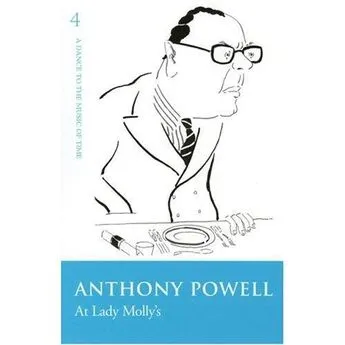Anthony Powell - A Buyers Market
- Название:A Buyers Market
- Автор:
- Жанр:
- Издательство:Arrow
- Год:2005
- ISBN:нет данных
- Рейтинг:
- Избранное:Добавить в избранное
-
Отзывы:
-
Ваша оценка:
Anthony Powell - A Buyers Market краткое содержание
Anthony Powell's universally acclaimed epic A Dance to the Music of Time offers a matchless panorama of twentieth-century London. Now, for the first time in decades, readers in the United States can read the books of Dance as they were originally published-as twelve individual novels-but with a twenty-first-century twist: they're available only as e-books. The second volume, A Buyer's Market (1952), finds young Nick Jenkins struggling to establish himself in London. Amid the fever of the 1920s, he attends formal dinners and wild parties; makes his first tentative forays into the worlds of art, culture, and bohemian life; and suffers his first disappointments in love. Old friends come and go, but the paths they once shared are rapidly diverging: Stringham is settling into a life of debauchery and drink, Templer is plunging into the world of business, and Widmerpool, though still a figure of out-of-place grotesquerie, remains unbowed, confident in his own importance and eventual success. A Buyer's Market is a striking portrait of the pleasures and anxieties of early adulthood, set against a backdrop of London life and culture at one of its most effervescent moments.
A Buyers Market - читать онлайн бесплатно полную версию (весь текст целиком)
Интервал:
Закладка:
Although these relatively exotic embellishments to the scene occurred within a framework on the whole commonplace enough, the shifting groups of the party created, as a spectacle, illusion of moving within the actual confines of a picture or tapestry, into the depths of which the personality of each new arrival had to be automatically amalgamated; even in the case of apparently unassimilable material such as Mr. Deacon or Gyspy Jones, both of whom, as I have said, were immediately absorbed, at least to the eye, almost as soon as they had crossed the threshold of Mrs. Andriadis.
“Who is this extraordinary old puss you have in tow?” Stringham had asked, while he and I had walked a little ahead of the other three, after we had left the coffee-stall.
“A friend of my parents.”
“Mine know the oddest people too — especially my father. And Miss Jones? Also a friend — or a cousin?”
He only laughed when I attempted to describe the circumstances that had led to my finding myself with Mr. Deacon, who certainly seemed to require some explanation at the stage of life, and of behaviour, that he had now reached. Stringham pretended to think — or was at least unwilling to disbelieve — that Gypsy Jones was my own chosen companion, rather than Mr. Deacon’s. However, he had shown no sign of regarding either of them as noticeably more strange than anyone else, encountered on a summer night, who might seem eligible to be asked to a party given by a friend. It was, indeed, clear to me that strangeness was what Stringham now expected, indeed, demanded from life: a need already become hard to satisfy. The detachment he had always seemed to possess was now more marked than ever before. At the same time he had become in some manner different from the person I had known at school, so that, in spite of the air almost of relief that he had shown at falling in with us, I began to feel uncertain whether, in fact, Anne Stepney had not used the term “pompous” in the usual, and not some specialised, sense. Peter Templer, too, I remembered had employed the same word years before at school when he had inquired about Stringham’s family. “Well, I imagine it was all rather pompous even at lunch, wasn’t it?” he had asked. At that time I associated pomposity with Le Bas, or even with Widmerpool, both of whom habitually indulged in mannerisms unthinkable in Stringham. Yet there could be no doubt that he now possessed a personal remoteness, a kind of preoccupation with his own affairs, that gave at least some prima facie excuse for using the epithet. All the rather elaborate friendliness, and apparent gratitude for the meeting — almost as if it might offer means of escape from some burdensome commitment — was unquestionably part of a barrier set up against the rest of the world. Trying to disregard the gap, of which I felt so well aware, as it yawned between us, I asked about his family.
“My father sits in Kenya, quarrelling with his French wife.”
“And your mother?”
“Similarly occupied with Buster over here.”
“At Glimber?”
“Glimber — as arranged by Buster — is let to an Armenian. They now live in a house of more reasonable proportions at Sunningdale. You must come there one day — if only to see dawn breaking over the rock garden. I once arrived there in the small hours and had that unforgettable experience.”
“Is Buster still in the Navy?”
“Not he.”
“A gentleman of leisure?”
“But much humbled. No longer expects one to remember every individual stroke he made during the polo season.”
“So you both rub along all right?”
“Like a house on fire,” said Stringham. “All the same, you know parents — especially step-parents — are sometimes a bit of a disappointment to their children. They don’t fulfil the promise of their early years. As a matter of fact, Buster may come to the party if he can get away.”
“And Miss Weedon?”
“Tuffy has left. I see her sometimes. She came into a little money. My mother changes her secretary every week now. She can’t get along with anyone since Tuffy resigned.”
“What about Peggy Stepney?”
“What, indeed?”
“I sat next to her sister, Anne, at dinner to-night.”
“Poor Anne, I hope you were kind to her.”
He gave no hint as to whether or not he was still involved with Peggy Stepney. I presumed that there was at least no longer any question of an engagement.
“Are you still secretary to Sir Magnus Donners?”
“Still to be seen passing from time to time through the Donners-Brebner Buildings,” said Stringham, laughing again. “It might be hard to establish my precise status there.”
“Nice work if you can get it!”
“‘A transient and embarrassed spectre’, as Le Bas used to say, when one tried to slip past him in the passage without attracting undue attention. As a matter of fact I saw Le Bas not so long ago. He turned up at Cowes last year. Not my favourite place at the best of times, but Buster seems to like the life.”
“Was Le Bas sailing?”
“Got up rather like a park-keeper. It is extraordinary how schoolmasters never get any older. In early life they settle on a cruising speed and just stick to it. Le Bas confused me with a Kenya friend of my father’s called Dicky Umfraville — you probably know the name as a gentleman-rider — who left the school — sacked as a matter of fact — some fifteen or twenty years earlier than myself.”
It was true that Le Bas, like most of his profession, was accustomed to behave as if never particularly clear as to the actual decade in which he might, at any given moment, be existing; but once assuming that recognition had not been immediate, his supposition that Stringham was something more than twenty-three or twenty-four — whatever his age at their meeting at Cowes — was not altogether surprising, because he looked, so it seemed to me by then, at least ten years older than when we had last seen each other. At the same time, it was no doubt unreasonable to mistake Stringham for Dicky Umfraville, of whose activities in Kenya I remember Sillery speaking a word of warning towards the end of my first year at the university. However, téte-â-téte conversation between Stringham and myself had now to come to an end, because by this time we had been admitted to the house, and the presence of a surrounding crowd of people put a stop to that kind of talk.
In one room the carpet had been rolled back, and a hunchback wearing a velvet smoking-jacket was playing an accordion, writhing backwards and forwards as he attacked his instrument with demiurgic frenzy.
“I took one look at you—
That’s all I meant to do—
And then my heart — stood still …”
To this music, cheek to cheek, two or three couples were dancing. Elsewhere the party, again resembling the Huntercombes’, had spread over the entire building, its density as thick on landings and in passages as among the rooms. There were people everywhere, and voices sounded from the upper levels of bedroom floors. Stringham pushed his way through this swarming herd, the rest of us following. There was a buffet in the drawing-room, where hired butlers were serving drinks. Moving through the closely packed mob, from which a powerful aroma of tobacco, alcohol, and cosmetics arose, like the scent of plants and flowers in some monstrous garden, we came suddenly upon Mrs. Andriadis herself, when a further, and enormous, field of speculation was immediately projected into being. Stringham took her hand.
“Milly …”
“Darling …” she said, throwing an arm round his neck and kissing him energetically. “Why so disgustingly late?”
“Overslept.”
“Milly ought to have been there.”
“Why wasn’t she?”
“Milly thought this was going to be a horrible party and she was going to hate it.”
“Not now?”
“Couldn’t be.”
I did not remember exactly what outward appearance I had planned before arrival for Mrs. Andriadis. A suspicion may not have been altogether suppressed that she might turn out to resemble, in physiognomy and dress, one of those formalised classical figures from bronze or ceramic art, posed as Le Bas would sometimes contort himself; but my invention, though perhaps in one aspect ancient Greek, was certainly modern Greek in another. However, the shape any imaginary portrait may have taken was quite unlike this small woman with powder-grey hair, whose faint touch of a Cockney accent, like her coiffure, was evidently retained deliberately as a considered attraction. She was certainly pretty, though the effect was obtained in some indirect and unobtrusive manner. Her dark eyebrows were strongly marked.
She stood clinging to Stringham’s arm, while, as if dancing, she twitched her body this way and that. Her eyes were brown and very bright, and the jewels she wore, in rather defiant profusion, looked as if they might have cost a good deal of money. She could have been about thirty-five; perhaps a year or two more. At first it seemed to me that she must have been a great beauty ten or fifteen years earlier; but I discovered, in due course, from those who had known Mrs. Andriadis for a long time that, on the contrary, the epoch of this party represented perhaps the peak of her good looks — that is, if her looks (or anyone else’s) could be admitted as open to objective judgment by some purely hypothetical standard; for, as Barnby used to say: “It’s no good being a beauty alone on a desert island.” Barnby himself adhered to the theory that Mrs. Andriadis’s appearance had been greatly improved after her hair had turned grey; being accustomed to add to this opinion the statement that the change of shade had taken place “After her first night with The Royal Personage, as Edgar always calls him.” I was strongly reminded by her appearance — so it seemed to me — of another woman; though of whom I could not decide.
“I brought some friends along, Milly,” said Stringham. “You don’t mind?”
“You darlings,” said Mrs. Andriadis. “It is going to be a lovely party now. All arranged on the spur of the moment. Come with me, Charles. We are making Deauville plans.”
Although obviously in the habit of having her own way in most matters, she showed no surprise at all at the sight of Widmerpool, Mr. Deacon, Gypsy Jones, and myself. Indeed, it seemed probable that, as newly-arrived entities, she took cognisance, so far as our self-contained group was concerned, of no more than Mr. Deacon and me, since Widmerpool and Gypsy Jones, threading their way across the room, had been left some little way behind the rest of us. Even Mr. Deacon, in spite of strenuous efforts on his own part, scarcely managed to shake hands with Mrs. Andriadis, although, as he bent almost double, the tips of their fingers may have touched. It was at that instant of tenuous contact that Mr. Deacon attempted to explain the matter, mentioned already by him at the coffee-stall, to the effect that he thought they had met once before “in Paris with the Murats.” An assertion of which Mrs. Andriadis herself took no notice whatsoever.
As it turned out, neither Widmerpool nor Gyspy Jones ever reached her at that — nor, as far as I know, any other — stage of the party, because, evidently deciding to spend no more time or her welcome of such miscellaneous guests, she took Stringham by the arm, and bore him away. Widmerpool, with a set expression on his face, passed obliquely through the crowd, still filled, as I supposed, with an unquenchable determination, even stronger, if possible, than Mr. Deacon’s, to make himself at all costs known to his hostess. Gypsy Jones also disappeared from sight at the same moment, though not, it might be presumed, with the same aim. Their effacement was effected rather to my relief, because I had feared from Widmerpool a stream of comment of a kind for which I felt not at all in the mood; while at the same time, rather snobbishly, I did not wish to appear too closely responsible for being the cause, however indirect, of having brought Mr. Deacon and Gypsy Jones to the house. This was the moment when the surrounding tableaux formed by the guests began to take coherent shape in my eyes, when viewed from the corner by the grand piano, where I had been left beside Mr. Deacon, who now accepted with a somewhat roguish glance, a beaker of champagne from the tray of one of the men-servants.
Читать дальшеИнтервал:
Закладка:









